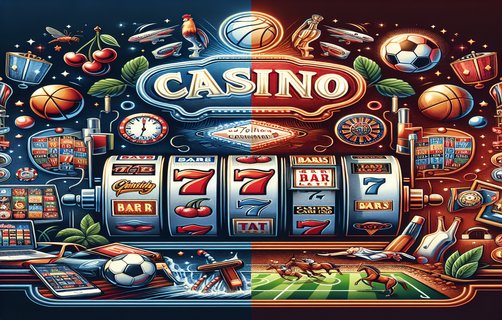Mastering the Art of Poker: Strategies for Long-Term Success
पोकर कला में निपुणता: दीर्घकालिक सफलता के लिए रणनीतियाँ
Poker is not merely a game of chance; it's a strategic battleground where long-term success hinges on a deep understanding of various elements at play. One must cultivate a disciplined long-term strategy that encompasses not only the art of playing hands but also the psyche of opponents. In poker, patience is a virtue as it allows a player to observe patterns, identify tendencies, and gauge the dynamics of the game. By focusing on the broader picture rather than immediate rewards, one can enhance their decision-making process, ensuring more profitable outcomes over time.
Equally important is mastering game pace control skills. The tempo of the game can dictate the emotional and mental state of players, including your own. If you’re too aggressive, you risk scaring opponents away or making costly mistakes. If too passive, you might miss out on opportunities to capitalize on their errors. By learning to adjust your pace in accordance with the rival’s tactics, you can both protect your stack and dictate the flow of the game, creating advantageous situations while keeping your adversaries off balance.

Another key aspect of successful poker play lies in the intricacies of bet distribution strategies. How you distribute your bets can disguise your hand strength and manipulate the actions of your opponents. For instance, employing a balanced approach to bet sizing—mixing small, medium, and large bets—can prevent opponents from establishing a clear read on your strategy. This element of unpredictability can lead to more considerable gains, as opponents may overvalue weak hands or undersea strong ones.
Long-term returns management strategy is paramount in poker. It involves meticulous bankroll management, understanding variance, and knowing when to walk away. One must preserve their capital to cushion against the inevitable swings of poker. Setting win and loss thresholds before starting a session, and sticking to them, can significantly enhance your longevity in the game. It is this discipline that ultimately separates professional players from amateurs.
Optimizing bets is an art and requires keen observation. Utilize your understanding of the current game state, player tendencies, and board texture to determine the optimal amount to wager at any given moment. This calculus can often mean the difference between a win and a loss. Moreover, the ability to read positions accurately plays a crucial role in your overall performance. Understanding where you are seated in relation to other players informs your betting decisions and strategies, often leading to favorable outcomes.

Finally, the delicate dance of bluffing and position reading is essential. A well-timed bluff can swing momentum and force opponents to fold hands they might have otherwise played. However, the success of a bluff hinges upon the accurate reading of opponents' body language, betting patterns, and historical data from previous hands. This advanced skill takes practice and patience but can yield significant rewards when executed effectively. Mastering these facets of poker can not only elevate your game but also ensure sustained success at the tables.
kill एक ब्लफ के सफल होने की देन आपके प्रतिद्वंद्वियों की शारीरिक भाषा, दांव के पैटर्न, और पिछले हाथों से ऐतिहासिक डेटा की सटीक पढ़ाई पर निर्भर करती है। यह उन्नत कौशल अभ्यास और धैर्य लेता है लेकिन प्रभावी रूप से निष्पादन किए जाने पर महत्वपूर्ण पुरस्कार प्रदान कर सकता है। पोकर के इन पहलुओं में महारत हासिल करना न केवल आपके खेल को ऊंचा उठा सकता है बल्कि मेज पर स्थायी सफलता सुनिश्चित कर सकता है।

comments
AceHighJoe
This article provides some deep insights into long-term poker strategies!
BluffMaster88
I love the emphasis on game pace control! It's often overlooked.
BettingNinja
The section on bet distribution strategies was really enlightening.
RiverKing
Great analysis! I definitely need to improve my bluffing techniques.
ChipStackHero
Long-term returns management is key; preserving your bankroll is vital!